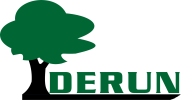Views: 0 Author: Site Editor Publish Time: 2024-04-11 Origin: Site












Wooden columnar activated carbon (WCAC) is a type of activated carbon that is made from wood. It is characterized by its cylindrical shape, which makes it ideal for use in columnar filtration systems. WCAC has a high surface area and a wide range of pore sizes, making it effective for removing a variety of contaminants from air and water.
WCAC is produced by first carbonizing wood under high temperatures. This process removes volatile matter and leaves behind a porous carbon structure. The carbon is then activated by exposing it to a high-temperature steam or chemical process. This process further develops the porosity of the carbon, giving it its high surface area and adsorption capacity.
WCAC has a number of advantages over other types of activated carbon, including:
High surface area and pore volume: This makes WCAC very effective for removing a wide range of contaminants, including organic molecules, heavy metals, and gases.
Uniform particle size: This reduces pressure drop in columnar filtration systems.
High mechanical strength: This makes WCAC resistant to breakage and abrasion.
WCAC is used in a variety of applications, including:
Air purification: WCAC can be used to remove pollutants from air streams, such as volatile organic compounds (VOCs), oxides of nitrogen (NOx), and sulfur dioxide (SO2).
Water treatment: WCAC can be used to remove contaminants from water, such as organic compounds, pesticides, and heavy metals.
Food and beverage processing: WCAC can be used to remove impurities from food and beverages, such as colorants, flavors, and odors.
Pharmaceutical and chemical processing: WCAC can be used to purify pharmaceutical and chemical products.
WCAC is a versatile and effective material that can be used in a wide range of applications. It is a sustainable alternative to other types of activated carbon, as it is made from a renewable resource.
Here are some specific examples of how WCAC is used in different industries:
Air purification: In the automotive industry, WCAC is used to remove pollutants from the exhaust of vehicles. In the semiconductor industry, WCAC is used to remove VOCs from cleanrooms.
Water treatment: In the municipal water treatment industry, WCAC is used to remove organic compounds from drinking water. In the wastewater treatment industry, WCAC is used to remove heavy metals and other pollutants from wastewater.
Food and beverage processing: In the sugar industry, WCAC is used to remove colorants from sugar syrup. In the wine industry, WCAC is used to remove off-flavors from wine.
Pharmaceutical and chemical processing: In the pharmaceutical industry, WCAC is used to purify antibiotics. In the chemical industry, WCAC is used to purify solvents and other chemicals.
What Are The Differences Between Impregnated Activated Carbon And Ordinary Activated Carbon?
Application of coal-based activated carbon in environmental protection field
The Principle And Effect of Activated Carbon Adsorption of Formaldehyde
Application of coal-based activated carbon in flue gas desulfurization and denitrification
